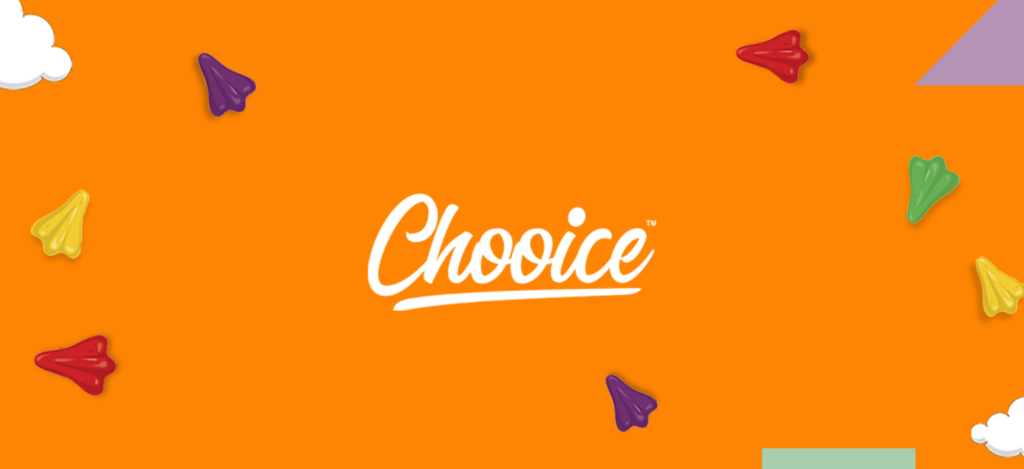
What were the motivations to create Chooice?
Chooice was originally the brainchild of entrepreneur and all ‘round good sort Sarah Colcord! Just like many Kiwi small business owners, Sarah lost all business at her event company Eventer when lockdown hit. So in an effort to promote Eventer for free, she created a Facebook group called New Zealand Made Products. It was literally an overnight success and climbed to over 10,000 members in its first week!
Sarah has since partnered with the team at Indigo: the good humans behind free business advice platform Manaaki. The group, now called Chooice (with two Os for more owesome), is New Zealand’s biggest Facebook group with over 540,000 members. And it’s backed by our new website Chooice.co.nz that’s already made a whopping $250,000 for small businesses!
What kinds of businesses sell their products through Chooice?
We have all sorts of awesome businesses on Chooice selling incredible products like Te Reo Māori clocks, caramel apples, woolen slippers, curry pastes and hot chutneys, tui paintings, beard oils, mud kitchens for kids, Letterman jackets, wood wick candles… Gifts for everyone you can think of!
We’re proud to support Kiwi businesses whether or not they make their products in New Zealand. Our goal is get money into Kiwis’ pockets so they can support their families and communities, and ultimately put that money back into our economy.
Do you think Covid-19 has accelerated Kiwis engaging in selling their own products?
Absolutely! Chooice really opened up the market for people who were already selling their own products. Some Kiwis who lost their jobs were forced to create a business out of necessity, and Chooice gave them a platform to take control of their lives again.
Lockdown also gave many Kiwis the time they needed to turn their passions into businesses and their side-hustles into full time work. And instead of having to sell through their own Facebook pages, websites, or at markets, they suddenly had access to 540,000 potential buyers who were keen to support Kiwi businesses. And all with literally zero spend on marketing or fees!
How is Chooice different from other buying and selling platforms?
Chooice is Kiwi owned and operated which we reckon is pretty special. We want to help Kiwi small businesses make as much money as possible, so we don’t charge any fees, except a 20% commission for businesses who choose to come on our Live broadcasts.
We’re giving small business owners access to this huge audience from the biggest Facebook group in New Zealand! Plus, we’re an easy one-stop-shop for buyers who want to buy Kiwi, or are just looking for something handmade and that little bit extra special.
How can Kiwis living overseas get involved?
It’s easy-as! You can send orders to friends and whānau at home, plus heaps of our stores on Chooice.co.nz offer international shipping. If you can’t see an international shipping option on their store, contact them directly and fingers-crossed they’ll be able to suss something out for you.
We also have the option to buy Chooice gift vouchers which are literally the easiest prezzie ever!
Our store owners are always chuffed when they get orders from overseas. The rest of the world feels so far away right now so it’s awesome to feel that international love. And it’s a treat being able to give Kiwis who’ve flown the nest a little taste of home.
What does the future have in store for Chooice?
We’re pumped for the big shopping days coming up: Labour Day, Cyber Monday, Christmas… Our small business owners are already getting their stock levels ready.
We’re also loving that more and more international buyers are coming to Chooice and we’re excited to see that grow. Kiwi businesses are world-class so we want to bring them to the world!
We’re just stoked that we can help buyers support Kiwi businesses. Chooice has been a lifeline for some New Zealanders, and literally kept roofs over heads and food on tables. We’re proud that they can use this platform to not just survive, but thrive, and we’re excited to watch it grow!
HOW KEA CAN HELP YOUR BUSINESS GROW
Kea Connect
Kea Connect is a free service that will help your business grow offshore. We connect you personally with regional, sector-specific experts and peers.
Resources
Kea is here to help New Zealand businesses grow offshore. Be inspired and hear advice from businesses who have created their export path.
Jobs Portal
Looking for the right talent for your team? Reach our global Kiwi community through the Kea international job portal.

 MENU
MENU











